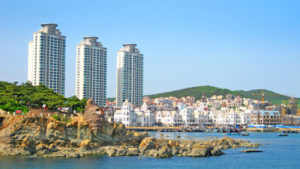[18-minute read]
Imagine: what if the world had a governing council, democratically elected, whose only mandate was to guide humanity towards oneness and global renewal? What if such a body were commissioned to rise above partisanship, indeed above the limited advantages of individual nation states, to consider thoughtfully the needs of all the world’s peoples? And while we’re in full-on fantasy, let’s imagine that this council’s members were chosen exclusively because of their capacity to serve, and not due to their power or fame or their desire for either. Wait, how about this? Let’s dispense with nominations, any sort of advantage for the rich (fundraising of any sort), narrowly based constituencies a candidate must favour, and the whole road-show of promises, slandered opponents and vote for me! What do you think? Which is stronger in your mind – the appeal of this flight of utopian fancy, or its impossibility?
Well, I have news. In truth, there’s no need for imagination. Such an institution is no mere dream. Did you know that there is a Universal House of Justice in the world? It was conceived in the writings of Baha’u’llah, the 19th-century Persian nobleman who was stripped of his social position and exiled far from his homeland, and why? For championing the renewal of religion, a new age of human prosperity, and the oneness of humankind. (If you have heard of the Baha’i Faith and its principles, Baha’u’llah is their author.) After steady growth in its numbers and capacity, the Baha’i community first elected what is now its supreme institution, the House of Justice, in 1963 in a remarkable process, completely free of campaigning or ambition. The electors, themselves chosen in a series of prayerful, conscientious procedures, privately vote every five years for those whom they feel have the best capacity to serve. This selection is based on assessments of the maturity, cooperative ability, mental strength, loyalty and selflessness of an individual. Not fame. Not good hair. Not vaulting ambition. Not wealth or privilege or lobbying or a telegenic smile. The difference between this process and the national elections we’re most familiar with – Baha’u’llah might have described them as “lamentably defective” – is as wide as your favourite ocean. Two particular qualities mark the distinctness of the Universal House of Justice from any other prominent governing body in the world. One is that most Baha’is in the world, I suspect, couldn’t even name a member of the House, such is its character and the nature of its elections. (A fame-watcher like me? I think I could name three, tops.) Second, and perhaps most important, not only are Baha’i communities everywhere in the world amazingly responsive to its requests, but they also love the institution of the House of Justice! Bizarre but true.
So now you know a little about this unparalleled system of governance, one that I’ve been mildly obsessing over and immoderately enthusing about for most of my life. Now, if you’ve never even heard of the Universal House of Justice, or barely have, don’t feel badly. This is a governing body that doesn’t send out press releases or trumpet its accomplishments, at all. Besides, with some astounding exceptions (such as the “Peace Message”, its 1985 letter to the peoples of the world), most of its communications are addressed to the Baha’i community, and in a human sea of over seven billion, Baha’is constitute only about one human in a thousand. I guess you could call this a minority report.

The seat of the Universal House of Justice, part of the Baha’i World Centre on the side of Mt. Carmel.
Dear reader, this has also been your preamble to a longer discussion of a superb talk I heard recently. The above introduction will help make sense of what follows, and explain why a group of us were so compelled to hear from a gentleman agricultural scientist we had previously known almost nothing about. (It’s a Baha’i Thing.)
*****
For the second time in a year, the Ottawa Baha’is and their like-minded friends recently benefited from the insights of a former member of this institution, Dr. Firaydoun Javaheri, on current conditions in the world. The first was in a sweltering lecture theatre at the University of Ottawa – we shook hands! hugged! listened and perspired, packed shoulder to shoulder! – and, the times being what they are, the most recent talk was on Zoom.
Originally from Iran, Dr. Javaheri trained as an agronomist, then made a pioneering move to Africa where he worked in several nations, primarily The Gambia and Zambia, finally as technical director for the Food and Agriculture organization of the United Nations. As a volunteer activist, he was in the forefront of the Baha’i community’s growing efforts in social and economic development and served on elected local and national councils – Baha’is call them “spiritual assemblies” – and subsequently as an appointed “Counsellor” for the African continent.¹ In his 50s, he was then elected to serve as a member of the Universal House of Justice, and did so for three 5-year terms, living and working on Mount Carmel in Haifa, Israel, where the Baha’i World Centre is located.² He is now retired and living in southern Ontario, Canada, where he has family ties..


